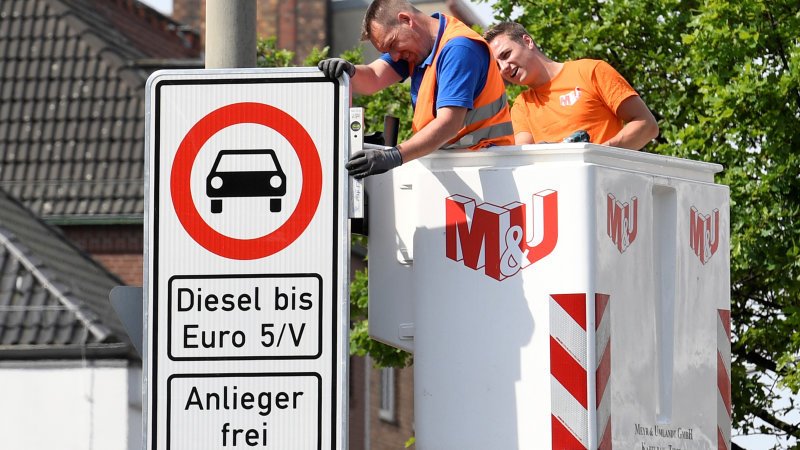German court bans older diesel cars in parts of Berlin

A Berlin court on Tuesday ordered Germany's capital to ban older diesel vehicles from some of its roads, dealing a blow to the government's attempts to avoid such restrictions while it strives to reduce air pollution.
On at least 11 stretches of road suffering from the highest levels of nitrogen oxide pollution, Berlin must ban vehicles meeting the Euro 5 emissions standards or those older, the court said in a statement. It added the city-state had not done enough to keep air pollution within permitted limits.
Beyond those streets, Berlin must analyze whether further bans are needed on a total 15 kilometers of road to lower nitrogen oxide concentrations in the city to 40 micrograms per cubic meter of air on average, the court said.
Earlier this month, the federal German government outlined plans to cut pollution from diesel vehicles by asking carmakers to offer owners trade-in incentives and hardware fixes in an attempt to avert further driving bans.
Diesel bans have already been imposed in Hamburg and are planned for Frankfurt and Stuttgart.
The case in Berlin was brought by environmental lobby group DUH in the latest attempt by activists to force regional governments in Germany to improve air quality.
DUH is pursuing legal cases seeking bans in 28 cities and has said it will file suits against six more cities this month.
Pollution from diesel cars has come under intense scrutiny after Volkswagen in 2015 admitted to using illegal software to cheat emissions tests, sparking a scandal that has cost it more than $27 billion in penalties and fines.
Environmental groups have been encouraged by a German federal court ruling in February that allowed cities to ban older diesel cars, dealing a blow to both automakers and commuters who rely on diesels to get to work.
Berlin now has until the end of March to legislate on the bans, and a further two to three months to implement them.
"This has been a good day for clean air in Berlin," Juergen Resch, managing director of DUH, told journalists after the ruling. The ruling "shows that the government's diesel compromise, which was not even to include Berlin, has failed."
However, Christian Amsinck, managing director of the UVB federation of business associations in the states of Berlin and neighboring Brandenburg, said the bans would do more harm than good, especially for businesses, adding: "Every closure hurts companies."
He urged the Berlin senate to appeal against the decision, adding: "The diverted traffic will cause more jams and emissions, which will worsen the air quality rather than improve it."
Related News
